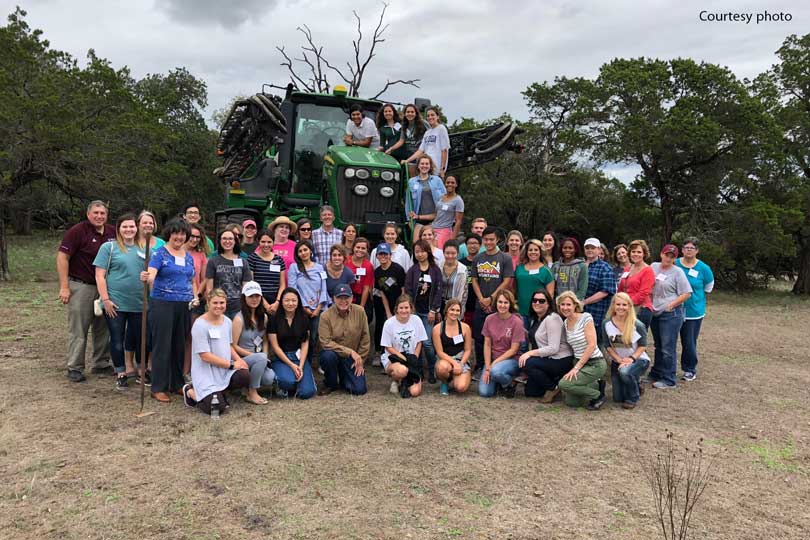By Jennifer Dorsett
Field Editor
A group of registered dietitians, nutritionists and Baylor University nutrition sciences students toured Central Texas farms this week and talked with agricultural experts to learn more about food and farming practices.
The tour’s theme was “understanding modern agriculture.”
The tour, which took place on Sept. 24, was a learning experience in more ways than one.
Participants spent the morning at Waco Dairy to see how technology is used on modern farms and ranches. Katie McKee, a registered dietitian with Dairy MAX, a non-profit dairy council, arranged the dairy farm tour along with an expert to come along with the attendees and answer questions.
Throughout the event, they were able to see farms and ranches and have an open dialogue with those who grow and raise food.
A panel discussion was held with three agricultural experts discussing sustainability in agriculture, water use in beef production and ways to combat food insecurity.
Abundant and affordable food, numerous choices at the grocery store and the ability to discuss farming practices isn’t the norm in other countries, Neil Walter, who was a panelist, noted.
“For us to be here today, wondering how our food got here and how it was treated, is an enormous blessing,” Walter, who farms and ranches in Central Texas and serves as a Texas Farm Bureau state director, said. “Other countries are just looking for food to eat. They don’t care about where it’s grown. They’re starving. We don’t always realize how fortunate we are.”
Dr. Dan Hale, professor and Extension meat specialist at Texas A&M University, also served as a panelist. He noted the good soils and accessible fresh water across most of the U.S. is a rare combination in other nations.
Biotechnology could be a large part of the solution to growing nutritious food sources in low socio-economic countries, according to Hale.
The nutritionists also toured Walter’s farm and ranch in Oglesby, where they visited with him about his farming practices. Walter talked about how he had personally benefited from bioengineered crop technology.
“My grandparents and parents were subsistence farmers,” Walter said. “They grew almost everything they ate, and there wasn’t much of any of it. I have choices in what to grow, and I can grow it better because of the machinery and technology available to me today.”
Neva Cochran, a registered dietitian, hosted the tour through her work with Bayer Crop Science’s Leaders Engaged in Advancing Dialogue (L.E.A.D.) Network. The program fosters conversations between the food and nutrition community and those responsible for growing the nation’s food supply.
“People are clamoring for some bucolic garden setting from 100 years ago, but that’s not realistic to feed today’s population,” Cochran said. “I want people to not be afraid of food and to know that conventionally-grown food is perfectly safe and nutritious.”
According to Cochran, working with nutritionists and dietitians is an effective way to combat misinformation about the food grown by American farmers and ranchers. Dietitians assist individuals in selecting a nutritious diet for health and wellness, she said, so educating and engaging with the professionals will have a trickle-down effect to consumers who want to learn more about food and nutrition.


How do GMO improve farming? I’m afraid to eat food that insects won’t eat.